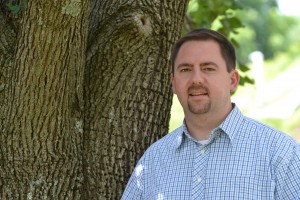Ever since the late 1990’s and the discussion of the definition of “is”, as well as the meaning of a few other words uttered during Clinton/Lewinsky scandal, one need has become more and more obvious. I am speaking of the need to define terms. Not only do people have limited vocabularies, we also have a vocabulary that is constantly changing.
By change I am not merely referring to the fact that some words become “dead” due to overuse while new words are being added every day. I am more specifically pointing out that certain words occasionally change meanings with various contexts. Therefore, not understanding a specific context in which a word is used can cause one to skew its meaning and perhaps incorrectly judge the political or religious position someone is taking.
So let’s try to clarify a few terms which have been known to cause a little confusion.
We will begin with the word conservative. Almost any thesaurus will list words like traditional and moderate as being synonymous with conservative. However, on the political spectrum, a conservative is someone who is clearly to the right of a moderate on most issues.
I actually see more confusion when conservative is erroneously equated with traditional when it comes to religious life.
Theologically, I am a conservative. By that I mean that I believe that the Bible is the inspired and inerrant Word of God. I believe that Jesus Christ is the divine Son of God who literally died for our sins and physically rose from the grave. I believe that salvation only comes through faith in Christ, that there is a hell to shun and a heaven to gain, and that Christ is returning one day to make all things right.
As a conservative, I accept as authoritative all the Bible teaches us concerning creation, miracles, angels, the roles and differences of men and women, marriage and family, human sexuality, and the mission of the church in the world.
But the word conservative does not necessarily mean the same thing as the word traditional when speaking of the church. A church can be conservative theologically and very contemporary stylistically. On the other hand a church can be extremely traditional in style and at the same time be liberal theologically.
Let me illustrate. Years ago a lady shared with me that her church was much more conservative than the church that I pastor. I was surprised to hear her say this. I happened to know that at that time her pastor did not believe in the exclusivity of the Gospel of Christ, the infallibility of Scripture, or the reality of an eternal hell. The church was lacking in godly male leadership in most ministry areas. They had rejected so many conservative ideals which our church had always embraced. Yet she assumed we were more liberal by comparison?
Actually it quickly occurred to me what she meant. The style of worship at her church was more traditional. They were going to sing songs from a hymnal usually accompanied only by a piano and organ. They were going to hold tight to traditional Baptist programs. So in her eyes that made her church more “conservative” than ours. I would have described her church as more traditional, but far more liberal theologically. She was focused on style while giving little thought to doctrine.
To reiterate, it is possible to be conservative theologically while at the same time contemporary or innovative stylistically. And it is also possible to be liberal theologically and very traditional in style. While conservative evangelicals actually took the lead in the modern contemporary style movement, style can no longer be an indicator of a church’s theology. You will have to dig a little deeper than outward observations to see where a church stands theologically. Neither musical preferences, elements of worship, Bible translations used, nor the appearance of the facilities serve as clear indications as to where the church stands doctrinally.
Let’s look further at the word liberal. Again, context will determine connotation. The Bible encourages us to be liberal in areas such as giving to meet needs, offering forgiveness, and showing love. The Bible says that God liberally gives us wisdom when we ask for it without doubting (James 1:5-6). But that is not what we are referencing when we refer to a theological liberal.
A theological liberal is one who usually rejects the infallibility of Scripture. Often having been influenced by Darwinism and higher criticism of the Bible, theological liberals reject doctrines like the exclusivity of the Gospel, a literal eternal hell, and the virgin birth of Christ. A theologically liberal church may have a worship style that is traditional and often very liturgical.
In politics, and occasionally in religion, liberals embrace the title progressive which is a reference to certain social reforms they deem necessary for making progress. The assumption is planted in the minds of young students that political conservatives do not like progress. However, conservatives and liberals both believe in progress. They just bring different sets of values and convictions by which progress is defined and measured. What one calls progress, the other sees as disruptive of progress because we have vastly different goals, standards, and visions of which we are in pursuit.
The word moderate is also a biblical concept. The Bible speaks of moderation as being a healthy thing when it comes to certain areas of diet or exercising religious liberties. But when the word moderate is used as an excuse not to take a stand on an issue in order not to offend someone who is more conservative or liberal on the same issue, we need to be reminded of the many biblical admonitions to have convictions and standards. I would not want to use the concept of moderation to excuse the lukewarm condition Jesus rebuked in Revelation 3:16!
What’s my point? In today’s world we must do more than embrace labels or judge others by the labels they embrace. We need to find out what they mean by these terms, if they even know for themselves. And we need to clearly articulate what we mean when using the same terms… as I’ve tried to do here. I sure hope it helps!


I like what you say
LikeLike